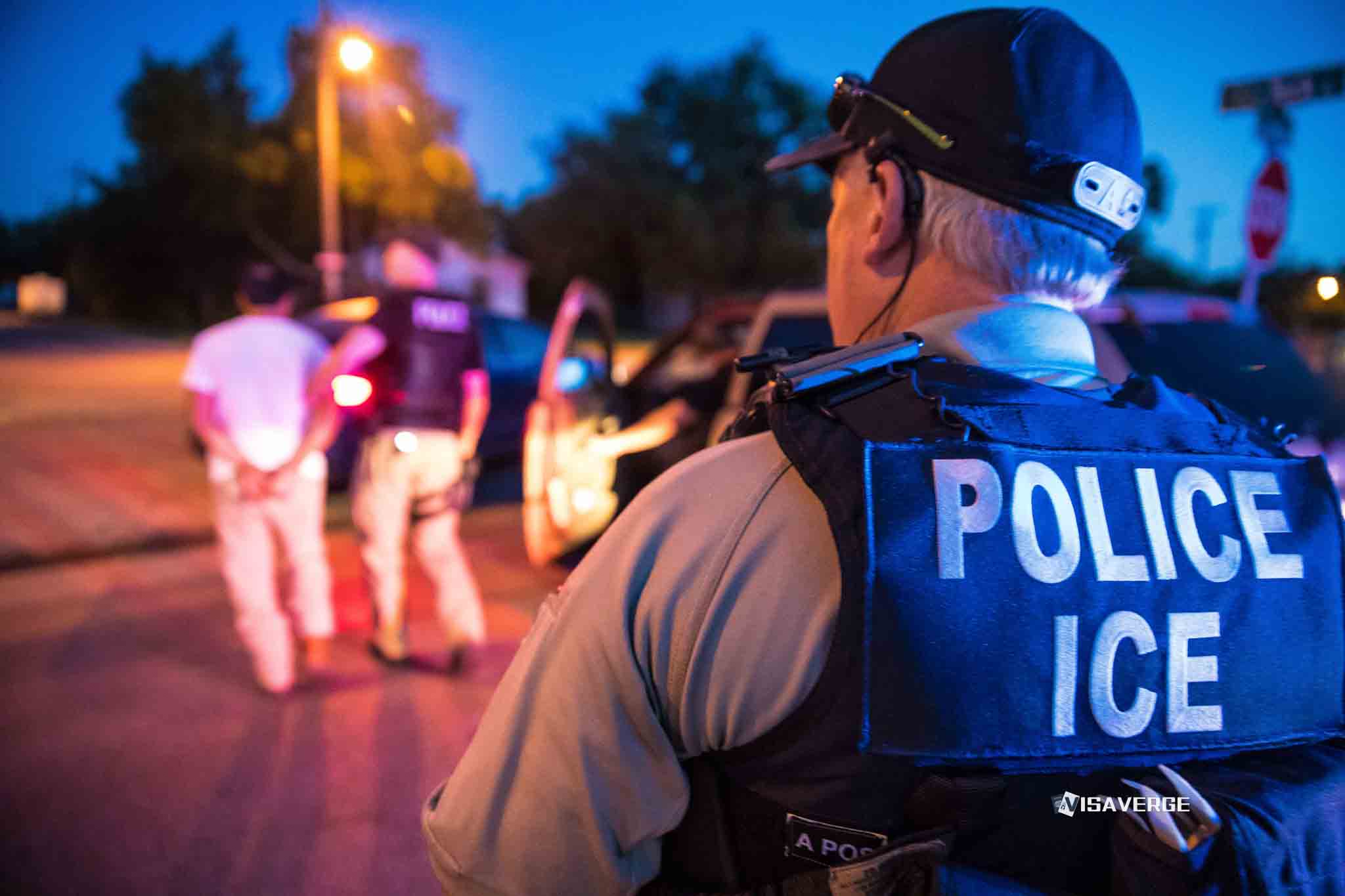(UNITED STATES) As lawmakers warn of possible funding lapses, immigration attorneys report that U Visa cases, including those filed by any derivative family member, generally continue moving forward even if Washington shutters. That’s because USCIS remains operational during a federal shutdown for services funded by fees, and U Visa petitions fall squarely into that category.
In practical terms, filings and adjudications keep going, mail is received, and biometrics and case reviews typically proceed. Applicants may still see limited slowdowns tied to other agencies, but the core USCIS work on U Visas continues.

Why U Visa Processing Continues
USCIS’s fee-based model allows staff to keep processing U Visa petitions for crime victims who help law enforcement, as well as related requests for spouses, children, parents, and, in some cases, unmarried siblings.
- Continuity: According to analysis by VisaVerge.com, the core U Visa pipeline doesn’t stop when appropriations stall.
- Stability for families: This continuity provides stability for families already facing long waits and high stress during a shutdown.
Policy Effects During Shutdowns
The central point is straightforward: U Visa derivative family member applications continue to be processed during a federal government shutdown. The agency’s normal intake and adjudication functions for these cases stay in place. That includes the principal petition and the derivative filings that ride with it.
Key operational points:
– Filings continue: Applicants can still send petitions and evidence to USCIS.
– Adjudications continue: Officers keep reviewing cases that are fully fee-funded.
– Limited program pauses elsewhere: Some programs that depend on yearly funding may suspend work, but those pauses generally do not cover U Visa adjudications.
A key form for these cases is Form I-918, Petition for U Nonimmigrant Status. USCIS continues to accept and process this filing and its accompanying evidence during a shutdown. Applicants can review the official instructions and current filing details on the USCIS page for Form I-918, Petition for U Nonimmigrant Status. For broader context on this category, USCIS also provides a topic overview at Victims of Criminal Activity: U Nonimmigrant Status.
The Department of State also runs on fee funding for most visa operations. That means consular processing for U Visa applicants outside the country usually continues during a shutdown, even if embassy staffing is reduced. Families should prepare for the possibility of slower appointment scheduling or delayed visa issuance abroad if local posts scale back to essential services. These shifts are local rather than systemwide policy changes, but they can still cause longer waits for interviews or document review.
Some government tools often used by employers and specific immigration programs (for example, E‑Verify or certain special immigrant programs) may pause during a shutdown because they rely on congressional funding. Importantly, those pauses are separate from U Visa work and do not generally block USCIS from moving U Visa petitions forward.
Practical Considerations for Families
Derivative eligibility depends on the principal applicant’s age at the time of filing. A derivative family member may be a spouse, child, parent, or in some cases an unmarried sibling, within defined age limits tied to the principal’s age. USCIS processes derivative requests alongside the principal U Visa application, which helps keep family cases aligned during adjudication.
Recommended practical steps:
– Keep copies of all notices and track mail closely.
– Watch for requests for evidence (RFEs) and respond promptly.
– Submit complete packets with clear evidence.
– Use reliable mailing options with tracking.
– Respond quickly to any USCIS notice or request for more documents.
If a derivative is outside the country and waiting for an appointment, plan for:
– Possible rescheduling or slower correspondence at consulates.
– Extra time for interviews, document review, or visa issuance if local posts scale back operations.
If the principal’s status is approaching an end date during a shutdown, consider pursuing available extensions to protect the ability of a derivative family member to enter or remain in the United States. Extensions help keep family cases aligned and avoid interruptions in eligibility that could strain reunification plans.
What to Expect — Realistic Timelines and Risks
For applicants worried about a complete standstill, remember the funding structure at play: USCIS is primarily fee-funded for core services. Therefore, shutdowns typically cause minimal impact to U Visa adjudications. This differs from agencies or programs that must stop without a budget.
However, attorneys caution that outside factors can create uneven experiences, such as:
– Local application support centers adjusting appointment slots.
– Consulates narrowing services temporarily.
These changes vary by city or overseas post. They are more logistical than legal, but they can still lengthen waits city-by-city.
Keep in mind: a shutdown is a budget event, not an immigration category change. Eligibility rules for the U Visa and derivative family members remain the same.
USCIS will continue to review:
– Whether the principal meets U Visa requirements.
– Whether each derivative fits the relationship and age criteria tied to the principal’s age at filing.
Families midstream in the process should keep monitoring case status as usual.
Final Advice for Applicants
The overarching message to U Visa applicants is steadiness:
- File on time and keep evidence organized.
- Reply to USCIS notices quickly.
- Consider the timing of the principal’s case and how it affects each derivative, both inside and outside the U.S.
- If a deadline for maintaining status is approaching, consult counsel about extension options to protect family eligibility.
For many survivors who qualify for a U Visa, a shutdown adds stress to an already heavy process. The reassurance is that USCIS keeps accepting and adjudicating U Visa petitions and derivatives despite a funding lapse. Where delays do arise, they’re most often linked to consular limits overseas or to unrelated programs that depend on appropriations.
As the budget debate unfolds, the core mechanics of U Visa processing remain intact. Families can continue to pursue the principal petition, keep derivative requests aligned, and take practical steps to avoid avoidable delays. Staying organized, allowing extra time for consular steps, and protecting status through timely extensions can make the difference between weeks and months in a process that already tests patience.
Frequently Asked Questions
This Article in a Nutshell
USCIS’s fee-funded model allows U Visa petitions and derivative family member applications to continue during a federal government shutdown. Form I-918 filings, adjudications, mail handling, biometrics, and case reviews generally proceed, providing continuity for eligible spouses, children, parents, and sometimes unmarried siblings. The Department of State also funds most consular visa work with fees, so overseas processing typically endures, though local posts may slow appointments or limit services. Programs relying on annual appropriations—like certain special immigrant programs or E-Verify—can pause, but these usually do not halt U Visa adjudications. Applicants should keep records, respond promptly to RFEs, use tracked mail, and consider extensions if statuses near expiration.













